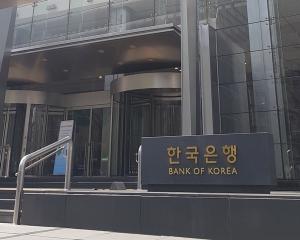Out of the 6.7 trillion won increase in the balance in February, the main charge accounted for 6.4 trillion won.
Credit loans’reduced growth’ due to inflow of bonuses and slowing stock investment

The bank’s household loan balance surpassed 1,000 trillion won for the first time ever at the end of last month. Mortgage loans accounted for most of the increase in the balance in February as demand for jeonse funds increased. Credit loans increased slightly due to the inflow of bonuses for New Year’s Day and slowing demand for stock investment-related funds.
According to the’Financial Market Trends in February’ announced by the Bank of Korea on the 10th, the balance of household loans at domestic banks as of the end of last month was KRW 103.1 trillion, an increase of KRW 6.700 trillion from the end of the previous month.
The scale of the increase was slightly reduced from 7.6 trillion won in January, but the balance of loans surpassed 1,000 trillion won for the first time as of the end of the month.
Among household loans, the balance of mortgage loans, including cheonsei loans, was 732.3 trillion won, an increase of 6.4 trillion won a month. As the demand for housing transactions continued, the trend of high growth continued, centered on cheonsei financing loans. The increase in cheonsei fund loans increased by 1 trillion won from 2.4 trillion won in January to 3.4 trillion won in February.
The balance of other loans, mostly credited by credit loans, was 26.9 trillion won, an increase of only 300 billion won from January. The rate of increase narrowed due to the inflow of bonuses for the Lunar New Year and slowing demand for stock investment related funds. Other loans increased by 2.6 trillion won in January.
Park Seong-jin, deputy head of the Financial Markets Bureau’s Market Management Team, said, “In the case of home mortgage loans, the demand for jeonse-related funds was large due to the increase in jeonse prices and the new semester compared to the new semester. He explained.
In addition, he added, “Although the increase in household loans continues, there is a need to observe the effects of the recovery of the real economy and the government’s household debt management measures in the future.”
Meanwhile, domestic banks’ delinquency rates for January this year rose slightly compared to the end of the previous month. According to the data released by the Financial Supervisory Service, the delinquency rate of Korean banks’ loans in Korean won (provisional), the delinquency rate at the end of January was 0.31%, up 0.04%p from the end of the previous month. Compared to 0.41% a year ago, it was down 0.10%p.
In January, the amount of new delinquency incurred was 1.3 trillion won, an increase of 400 billion won compared to the previous month, and the amount of delinquent receivables was 500 billion won, a decrease of 1.6 trillion won from the previous month.
By type of loan, the household loan delinquency rate was 0.21%, up 0.01%p from 0.20% at the end of the previous month. The delinquency rate for mortgage loans was 0.14%, similar to the level of the end of the previous month, and the delinquency rate for household loans excluding the headline was 0.37%, up 0.04%p from 0.34% at the end of the previous month.
Copyright © Shin-A Ilbo Unauthorized reproduction and redistribution prohibited
